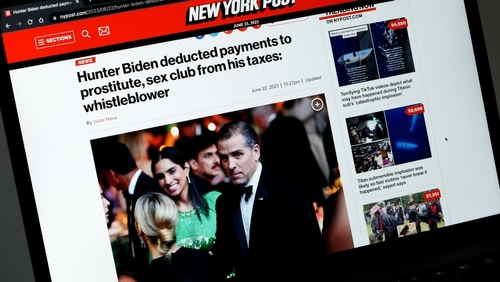The controversy surrounding Hunter Biden’s eligibility to practice law after a presidential pardon brings to light the complex interplay of ethics, privilege, and the U.S. justice system. Hunter Biden received a presidential pardon covering offenses from 2014 to 2024. Hunter Biden’s law licenses are suspended pending further investigation.
Pardon and Political Controversy
President Joe Biden signed a pardon for his son, covering offenses from January 1, 2014, to December 1, 2024. This decision has ignited criticism due to its perceived implications of favoritism and possible corruption within the system. While Biden maintains that he has not influenced Justice Department decisions, the pardon did raise eyebrows for its timing and broad language.
The charges against Hunter Biden emerged after an investigation that began in 2018, became public in 2020, and resulted in 2024 convictions for lying on a gun purchase form and tax evasion. These legal battles highlight the challenges in navigating the justice system, especially under political pressure.
"No. No. It's a no. It will always be a no. Biden will not pardon his son Hunter."
Guess what? THEY LIED. pic.twitter.com/tClxjSiyLJ
— End Wokeness (@EndWokeness) December 2, 2024
The Center for American Rights has urged disciplinary action against Hunter Biden, emphasizing that the president’s pardon does not exempt him from professional accountability. His law licenses in Washington, D.C., and Connecticut are currently suspended, with investigations mandated by the D.C. Court of Appeals.
Privilege and Professional Integrity
The possibility of Hunter Biden practicing law despite federal pardons brings into question the ethical obligations of legal professionals, and how privilege may influence these decisions. Although the pardon cleared him of federal offenses, state and bar regulations could still preclude him from legal practice.
I have to do 1 last political rant after Joe Biden pardoned Hunter Biden. I never want to hear Democrats lecture Americans about having the moral high ground ever again. pic.twitter.com/2hRXHeysma
— Dave Portnoy (@stoolpresidente) December 2, 2024
The disciplinary complaint against Hunter emphasizes that, regardless of familial connections, no individual should be above the law. This underscores the importance of upholding justice and fairness within professional domains.
The Connecticut Statewide Grievance Committee has yet to schedule a hearing to determine Hunter Biden’s professional standing, leaving his future uncertain. Meanwhile, ongoing discourse on rehabilitation versus privilege continues to challenge public perceptions of the justice system’s equity.
The Future of Legal Frameworks
This situation underscores the need for comprehensive legal frameworks that consider rehabilitation while ensuring professional integrity. As high-profile cases such as Hunter Biden’s unfold, they serve as critical examinations of how justice and professional ethics are administrated across societal strata.

